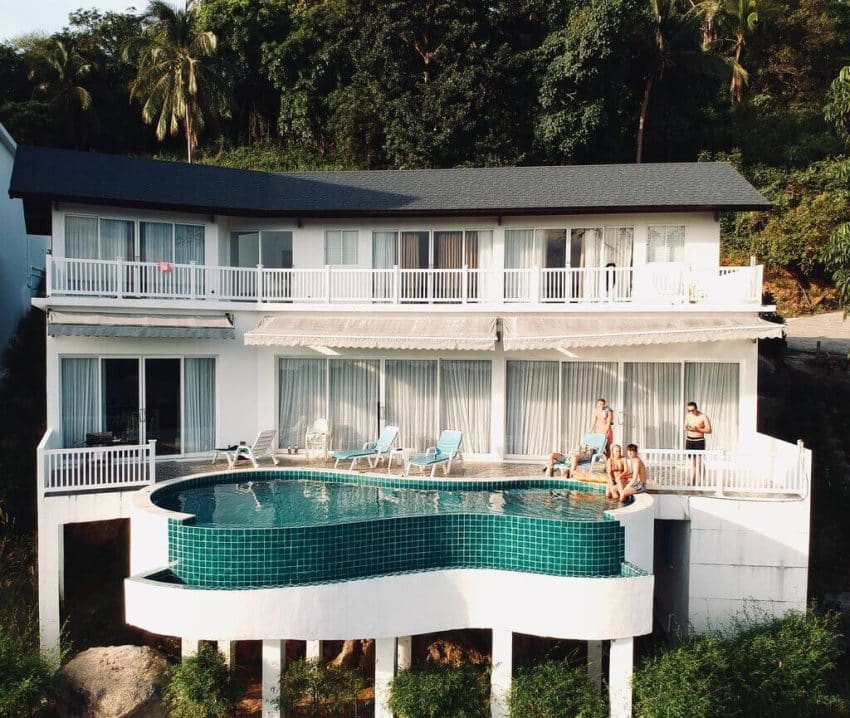It can be challenging to navigate the world of property rentals, especially in places like Thailand, where the rules and regulations governing Airbnb rentals are complex. However, with the right information, property owners can take advantage of booking platforms like Airbnb in Thailand to offer their accommodations to travelers or expats and earn extra income. We’ll explain if Airbnb is legal in Thailand and how to list your property on the popular booking platform.
Is Airbnb legal in Thailand?
The question of Airbnb’s legality in Thailand is a topic that has generated much debate over the years. The short answer is that renting out your property daily or weekly, which is a common practice on Airbnb, is considered illegal in Thailand. This ruling is based on the country’s Hotel Act, which prohibits individuals from renting out their properties for less than a month without a hotel license.
Despite this, many properties across popular destinations in Thailand are listed on Airbnb, operating in a legal grey area. The enforcement of these laws has been inconsistent, with the authorities focusing on larger operations that resemble hotel services more than private, one-off rentals. Although many property owners still rent their property on Airbnb in Thailand, it’s crucial to understand that risk is involved. Property owners (Airbnb hosts) could face legal penalties if reported and caught.
How to list your property on Airbnb in Thailand?
Despite legal challenges, if you decide to list your property on Airbnb in Thailand, the process is relatively straightforward:
- Create an Airbnb account: Click here to create an account at Airbnb to list your property. You can list your property after providing some basic information about yourself.
- List your property: List your property in your account by providing detailed information about your home. This includes the property type, number of guests it can accommodate, location, amenities, and any house rules guests should know.
- Set the pricing: You need to set a price for your accommodation. Airbnb has a Smart Pricing tool that adjusts your price based on demand and supply, but you can also set manual rates if you prefer.
- Upload high-quality photos: Images are critical for attracting guests, so upload high-quality photos that showcase your property in the best light.
- Publish your listing: You can publish it once you’re satisfied. Once listed, it will be live on Airbnb and visible to potential guests worldwide.
Fees for Airbnb in Thailand
It’s free to list your property on Airbnb in Thailand, although Airbnb charges hosts a service fee every time a booking is completed on the platform. This fee is typically 3% but can vary depending on your cancellation policy and other factors. Airbnb’s service fee is automatically deducted from the payout, which can be paid on a foreign or Thai bank account.
Tips and tricks to become a successful Airbnb host in Thailand
There are several tips and trips to maximize your success as an Airbnb host in Thailand:
- Set a competitive pricing: Research other listings in your area and price your property competitively. Consider special discounts for longer stays to navigate the legal restrictions for Airbnb in Thailand.
- Hire a photographer: High-quality photos showcase your property in the best light, so consider hiring a photographer who can take the best pictures of your house.
- Maintain high standards: Keep your property clean and well-maintained and offer amenities like free Wi-Fi, air conditioning, and breakfast.
- Encourage reviews: Positive reviews boost your visibility on Airbnb in Thailand, so encourage satisfied guests to leave a review after their stay.
- Understand the legal system: Stay informed about the legal situation of short-term Airbnb rentals in Thailand. Consider consulting with a legal expert to navigate the regulations effectively.
- Communicate quickly and clearly: Be responsive to questions and inquiries and communicate clearly with potential guests. A high responsiveness improves your ranking on Airbnb in Thailand.
Frequently Asked Questions (FAQs)
Is Airbnb allowed in Thailand?
Airbnb is allowed in Thailand, although short-term Airbnb rentals (less than 30 days) are not allowed without having a hotel license. However, many properties in Thailand are still listed and rented without a hotel license, as Thai law enforcement has been inconsistent.
Is Airbnb illegal in Thailand?
Airbnb is not illegal in Thailand if the property owner has a hotel license for short-term Airbnb rentals or when the accommodation is rented out for 30 days or longer. However, in Thailand, Airbnb is considered illegal when property owners rent their property without following Thai rules and regulations.
Is Airbnb in Thailand profitable?
Airbnb in Thailand can be highly profitable as Thailand is one of the most visited countries by tourists worldwide. There are several locations in Thailand where Airbnb can be beneficial, such as Bangkok, Pattaya, Phuket, and Koh Samui.



